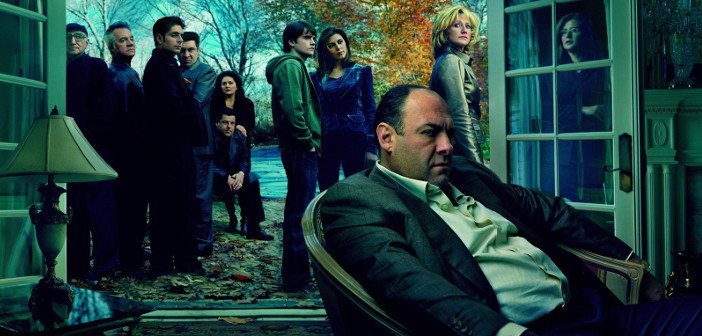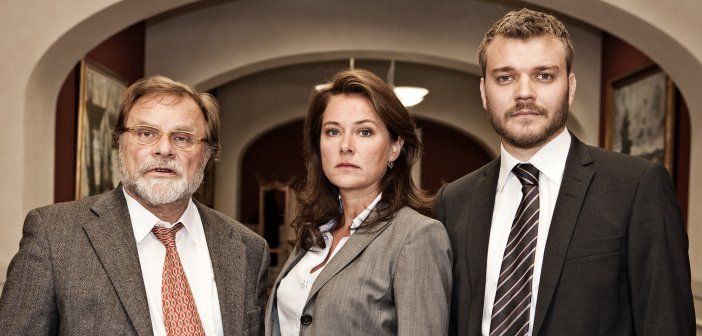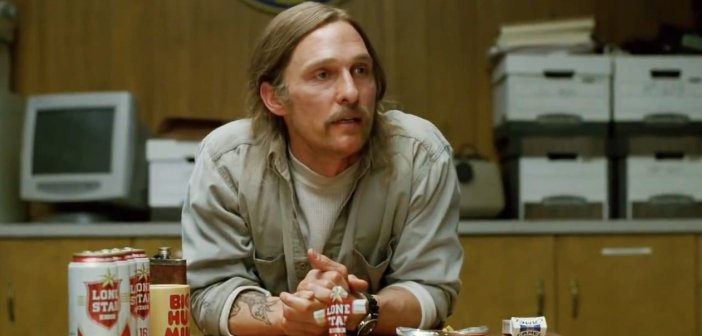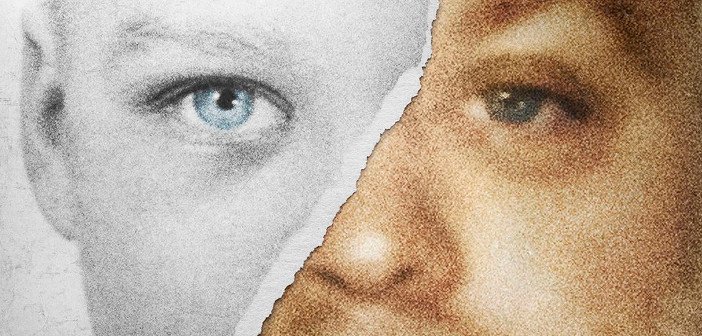The Golden Age Of Television | Part 1 | Trust No One
We are living in the Golden Age of Television. Television has equalled, and probably surpassed, cinema as the place where the most innovative, aesthetic, and popular mass media is being created. Our social media feeds, as well as our conversations in classrooms, canteens, pubs and kitchens are dominated by talk of the latest breakout TV show.

For me, the genesis of this golden age was The Sopranos* Season 1 which a friend of mine handed me on a long-play VHS one Monday morning in early 2000. He advised me to watch it all before season 2 started on Channel 4 that Thursday. I remember thinking there was no chance I’d watch 13 hours of TV in three days. By the time he returned from work eight hours later I was eight episodes deep and experiencing for the first time the guilt that accompanies such binge-watching.
*David Chase, creator of The Sopranos, hoped that HBO wouldn’t pick up the show after the pilot but would instead offer him the money to make a Sopranos movie.
Television is the drug of the nation and recent evidence proves that we’ve never been more addicted. Netflix reported that its subscribers watched 12 billion hours in the last three months of 2015. We’re watching more TV than ever before and we’re watching it in new ways and in new places. What effect does all this TV consumption have on how we view the world? Does the TV we watch effect our opinions, our beliefs, our hopes? How has the psychology behind television production and watching changed as we embrace streaming content? In this series of articles I will explore the business and psychology behind television, how and why we watch it, the rise of the anti-hero, and the impact TV is having on our lives.
For me, It begins with Borgen

George Gerbner, who spent most of his life studying the effects of television, believed that TV had the power to shape our lives. Gerbner said:
“The television set has become a key member of the family; the one who tells most of the stories, most of the time.”
So exactly what stories has our four-sided sibling been telling us? It might be easier to start with a story that the golden age of TV hasn’t been telling us; that politicians are motivated by the public interest, that they’re belief driven, and that they’re deeply concerned about the long term viability of pension plans, but that’s where this part of the story begins.
One Saturday evening in 2010, I sat watching the first two episodes of the superb Danish political drama, Borgen, on BBC4. Midway through the second episode my enjoyment was disrupted by the nagging sense that something was rotten in the state of Danish TV. It took me a while to put my finger on the cause of my unease but it gradually dawned on me that Borgen portrayed a political class that cared about their manifesto, their electorate, they even seemed to care about their families/relationships.
As someone who cherishes their cynicism as much as I do, Borgen seemed naïve. It occurred to me that Borgen couldn’t have been made in the US or the UK because TV audiences couldn’t be expected to suspend their disbelief enough to believe in their politicians. We find it easier to believe a politician could be woefully incompetent (24 Seasons 4-8) or throw someone under a subway car (House Of Cards Season 2) than truly care about what/whom they represent. Long gone is the era of TV’s deference to our betters. If the golden age has taught us anything it’s this; trust no one.
Trust no one
![]()

The early years of the 21st century have seen TV destroy the societal institutions it once held dear. When was the last time dramatic television gave us something or someone we could believe in? Luckily for us, if sarcasm inspires the lowest form of wit then cynicism inspires the highest form of television.
According to The Killing and The Wire we can’t believe in politicians or politics. The Wire, The Shield and True Detective shake our belief in even the most effective of police forces. Would you trust a doctor having watched Nurse Jackie? A teacher having seen Breaking Bad? The secret service after viewing Homeland? The laws of physics having finished LOST? Modern TV even tells us that we can’t always trust ourselves, think Mr. Robot.
Writing in 2000, and building on the work of Gerbner, two academics by the names of Cohen and Weimann stated that:
“…the more time people spend ‘living’ in the television world, the more likely they are to believe [the] social reality portrayed on television.”
If we believe the reality portrayed on TV then we no longer believe in the institutions TV so regularly discredits. I’m not saying that belief/non-belief is binary but modern television cultivates a distrust of the establishment.
Cultivation Theory & Mean World Syndrome

Apart from the direct power of TV to affect what we wear (weather reports) or what time we leave for a meeting (traffic reports) most of us like to think we are otherwise unaffected by what we watch. Gerbner believed that people who watch a lot of violent television are affected by their viewing choices, but not in the way previously assumed. Gerbner said that exposure to a lot of violent programmes doesn’t make us any more violent but instead cultivates in us a belief that the world is more dangerous than it actually is. Michael Morgan, while working with Gerbner, stated that there is:
“ …a clear correlation between the amount of media we consume and the degree of fear and anxiety we have about the world.”
Gerbner called this exaggerated view of the dangerousness of the world the Mean World Syndrome.
The golden age of television is convincing us that the world is not just mean, but untrustworthy. Cop shows always showed the underworld as deceitful but in general Gerbner’s cops (from 1960s, 70s, & 80s TV) could be trusted to do the right thing. Not in the golden age. Modern TV cops are as likely to break the rules as those they are pursuing. And it’s the same pattern with all institutions or ideals frequently portrayed on TV. When you see suburban US neighbourhoods with white picket fences do you feel suspicion, or comfort? Public trust in politicians has plummeted as media portrayals of them as self-interested or worse has increased. This mistrust doesn’t appear to have effected doctors in the same way, they’re still at the top of the public’s most-trusted lists, but if a show like Making A Murderer was to do for doctors what it did for the Manitowoc police department then who knows what the next survey might reveal.
Speaking of Making A Murderer, has any show been so universally watched and discussed in such a short space of time? In the next part of the series I’ll examine how much TV we’re watching, how we’re watching and why, once we start watching, we can’t stop.

